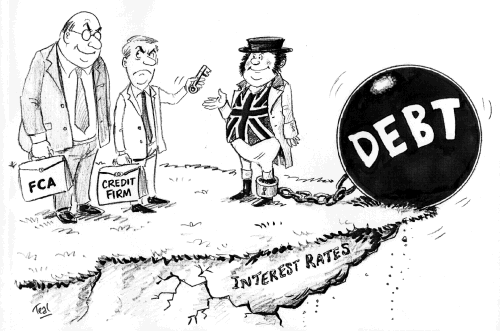As night follows day, when interest rates eventually go up, there are going to be an awful lot of people defaulting on loans, be they credit card, mortgages or whatever. This, of course, despite constant and strident warnings that consumers should not over commit themselves. The FCA, to its credit, is trying to anticipate things by leaning on banks and credit card firms. It has identified that there are roughly 3.3 million people who pay more in interest and charges on their borrowings than they do to reduce their debt. This is of course good business for the lenders. They have little incentive to intervene. Their least profitable customers are those with their heads screwed on, who clear their debts at the end of every month.

The regulator proposes that if a credit card customer has been in persistent debt for 18 months, the credit card providers should be required to engage with them and discuss ways of reducing the debt. If the customer remains in persistent debt for a further 18 months, so 3 years in total, the providers should take further steps which might include reducing or waiving interest and charges and using all payments to reduce the debt. It will be up to providers as to how they implement these proposals as long as the outcome is helping the customer to repay within a reasonable time frame. There was a time, well within living memory, when credit cards did not exist and you had to earn money before you could spend it. Funny how well we seemed to cope.
[hr]
The above is the lead article in our latest monthly News Notes – May 2017. Other topics in this edition include:
- Car Loans
- Durable Medium
- More Conflict of Interest
- Streamlined Advice
- Data Protection GDPR
- Check your regulatory fees
Haven Risk Management : FCA Compliance Consultants
